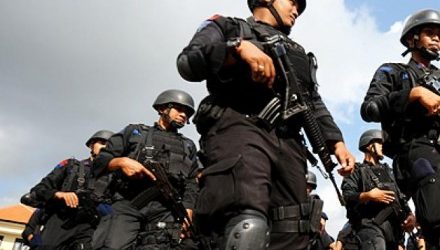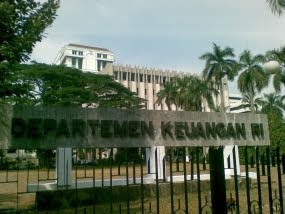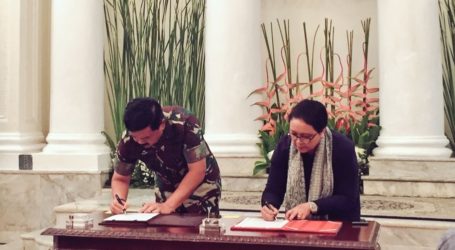Rivalry Between IS Factions May Fuel More Attacks in Indonesia

Petaling Jaya, 28 Rabiul Akhir 1437/7 February 2016 (MINA) – A new report by a Jakarta-based think tank group has found that more terrorist attacks in Indonesia could be expected as various groups vie for regional leadership.
The report by the Institute for Policy Analysis of Conflict (IPAC) said that three Indonesian Islamic State (IS) fighters based in Syria were competing with each other to encourage and fund their contacts in Indonesia, Malaysia and the Philippines to undertake attacks.
“More terrorist attacks in Indonesia are likely as local ISIS leaders compete at home and abroad to establish their supremacy,” read the report, Mi’raj Islamic News Agency(MINA) reported, quoting the Star.com.
The trio consists of Bahrumsyah alias Abu Ibrahim, who commands Katibah Nusantara which is the Indonesian-Malaysian fighting unit in IS; Salim Mubarok alias Abu Jandal who heads Katibah Masyaariq which split from Bahrumsyah’s unit; and Bahrun Naim who tries to remain neutral between the other two while simultaneously
positioning himself as the best leader to inspire attacks in the name of ISIS.
The report warned that the terrorist attacks in Jakarta on Jan 14 would precipitate further violence as the rivalry between the different factions among Indonesian IS supporters escalates.
The Jakarta attacks are now considered to be the work of a group called Partisans of the Caliphate or Jamaah Anshar Khilafah (JAK), a group aligned to Abu Jandal’s Katibah Masyaariq though he is thought to not have been involved in the attacks.
However, the dangers of competing terrorist factions are made apparent as the report states that Bahrumsyah, upon hearing of the attacks, immediately ordered one of his men in Indonesia to do something similar though this move was later foiled.
“Indonesian police have done good work in foiling several other terrorism attempts but this one-upmanship among pro-ISIS leaders has suddenly made their task much tougher,” said IPAC director Sidney Jones.
This rising threat comes as these pro-IS groups, which are mostly confined to single countries, are beginning to have more “trans-border contact”.
Bahrumsyah is reported to have transferred funds to both Indonesia and the Philippines while Malaysians and Indonesians are becoming involved with terrorist groups in Mindanao which may be strengthening their contacts with IS in Syria.
The report states that while President Joko Widodo is committed to strengthening anti-terrorism laws and deradicalisation programmes, focus should also be on prisons, which is where terrorists expand their influence and “plots are hatched”.
“The problem is that while attacks like those on Jan 14 help rivet the attention of senior officials for a few weeks, other priorities inevitably take over and Indonesia slips back into taking for granted that the problem has been solved,” read the report. (T/R07/R01)
Mi’raj Islamic News Agency (MINA)






